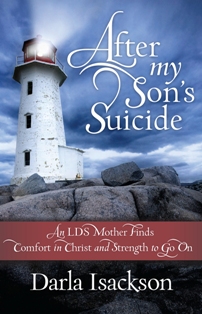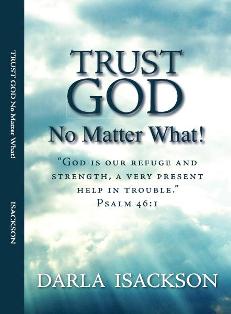Author note: I originally wrote this article nearly ten years ago. Since then, our combined family of seven sons have all grown up and most of them have families of their own. But when I re-read it recently I realized that all the principles still apply. I hope this closer look at charity will inspire you as it has me.
In 1989, when Doug and I invited family members to celebrate our marriage, the two of us had little understanding of what we were being invited to. Little did we suspect the demands a blended family would make on us. After fourteen years on this path, I know now that for us, our wedding was an invitation to charity.
What is “Ideal,” Anyway?
Those who live in blended families–particularly those of us who land there by way of divorce–survive best by subscribing to Barbara Smith’s words that “ideals are stars to steer by, not sticks to beat ourselves with.” When I divorced I felt the loss of the intact family compounded a million times by my lifetime of conditioning in the Church. I had lived and breathed for the goal of creating the “forever family” ever since I could remember, and now that dream seemed forever shattered.
As the years progressed I often had to remind myself that life is not about creating “the ideal” but about learning (especially learning our need for charity), loving (not in the world’s way, but in Christ’s way), and becoming (more like Him). Difficult circumstances, such as divorces, second marriages, and blended families can be excellent catalysts to speed up our progress toward these important things–if we are willing to be enlightened and transformed rather than wasting our energies complaining about how difficult our life is and how different from what we originally set out to create. Since God’s greatest concern is our spiritual growth, and challenging circumstances often spur spiritual growth, perhaps life in a blended family is more “ideal” than we might suspect.
Welcome to Holland
A simple little story by Carol Turkington helped me adjust to the realities of my new life. She suggested we liken our serious disappointments to the experience of planning to go to Italy and ending up in Holland. She suggested we say, “this isn’t where we thought we’d be, but look at all the possibilities–Holland has windmills. Holland has tulips. Holland has Rembrandts.” She said we have to accept the pain of the loss of the dream–a very significant loss. But if we spend our lives mourning the fact that we didn’t get to go to Italy, we will never be free to enjoy the very special, the very lovely things about Holland.
I have watched Doug struggle with that concept each time his two boys return to Washington State at the end of their summer stay with us. Sometimes he begins mourning their departure long before they leave–forgetting to enjoy every moment while they are here. He just plain hates the fact that they don’t live with us all the time. One day at the mall I saw a tole-painted plaque that said
“Do not mourn what cannot be; celebrate what is.”
How many of my frustrations and disappointments have come from desiring what cannot be! My goal now is to learn to accept and look for the good in outcomes far different from what I expected. I bought the plaque and we still have it on the wall. It helps us remember how many blessings our marriage has brought us when the chasm between being “in Holland” and the “Italy” we dreamt of yawns so wide it threatens to engulf us.
It has not been easy to deal with losing our expectation of going to “Italy.” The loss of what we thought our family would be, the loss of the life-long relationship we expected to have with our first spouses, and the loss of the “intact” home we wanted to give our children has been deep and poignant.
The Challenges Abound
One day, early into my second marriage, I was voicing my frustration in prayer–telling the Lord how impossible it seemed to create a coherent whole out of all the pieces of my new life. My husband, Doug, came from a tiny family and had two young sons. I came from a large family and had five strapping older sons. I was having to adjust to little ones around again. My youngest was eleven when we married. His youngest only two! Since I have always adored little children I thought it would be a snap to love them like my own. It wasn’t.
His adjustment to a whole houseful of boys of all ages was stretching him to the limit. For example, early one morning that first summer I was serving dozens of hotcakes to a kitchen full of boys–nothing unusual for me. There were his two, three of mine, and a neighbor boy who had slept over. Doug walked into the kitchen, took one look around, then high-tailed it back to the bedroom. I followed him and said, “What’s the matter, honey? Come and eat.”
“But there are ten thousand people in my kitchen!” he exclaimed. In his whole life experience before our marriage, he had never sat down to eat in his own kitchen with so many people. The scenario was unfamiliar and overwhelming to him.
Another tiny incident illustrates the dynamics we both were up against. Doug’s children have always spent most of the summer with us. The second summer Carl, seven at the time, was sitting at the snack bar one Saturday morning waiting for his lunch. I was fixing exactly what he wanted–hot dogs. I flipped his hot dog onto a bun, put it on plate and cut it in half–something I’d always done for my little ones. I put the plate in front of him and he immediately began wailing–crying loud and hard! Astounded, I asked him what in the world was wrong. He blubbered, “My mom never cut my hot dog in two. I don’t want my hot dog cut up!” I threw my hands in the air and made a hasty exit, knowing I was teetering on the edge. I found Doug and said, “You handle this. I’ve had it!”
And so it went. In those first years of our marriage we had the regular marital challenges of adjusting to our new spouse’s idiosyncrasies and ways of doing things. But we were also faced with those of our step-children and those of our former mates that came trailing into our current marriage via the children and our own emotional baggage from our first marriages. We were often exasperated, often driven to our knees in pleading prayers for strength. Through it all I became more and more aware of my desperate need for charity.
Choosing Charity
The text that has become the most important, most basic guide for any progress we have made in our blended family comes from Moroni 7:44-48:
“For none is acceptable before God, save the meek and lowly in heart;
Nothing in my life has kept me on the path toward being meek and lowly in heart more than the challenges of divorce and creating a blended family.
and if a man be meek and lowly in heart, and confesses by the power of the Holy ghost that Jesus is the Christ, he must needs have charity; for if he have not charity he is nothing; wherefore he must needs have charity.
I have stood without charity many times in a moment of stress with my new children and felt that nothingness. I have seen over and over that without God, without charity, my life in this new setting would be unbearable. That reality has motivated me greatly to repent and seek the pure love of Christ. I have truly learned that life is nothing without it.
And charity suffereth long, and is kind,
Suffering long is easy–what choice do I have? But staying kind through the suffering is the hard part–the part accomplished only through the blessings of the Spirit. When I am not kind, I am miserable. Consequently, I find that I am highly motivated to listen to the Spirit and choose kindness.
and envieth not,
I have been sorely tempted to envy, even covet, the family situations of others. You know what others I’m talking about–the ones whose families look “ideal,” whose lives have never been touched by divorce, who seem to have the long-term closeness, mutual supportiveness, and cohesiveness I always wanted. I have to pray often to have my heart stripped of envy.
and is not puffed up, seeketh not her own,
I think my tendency is to feel tiny and inadequate rather than puffed up until I see the pride lurking beneath my judging and lack of acceptance of what is. I remember President Benson’s statement that feeling inferior and feeling superior are just two sides of the same coin of pride. I struggle constantly with “seeking my own.” I want my way, I want my dreams to come true, I want so many things I’ll never have in mortality, such as a golden wedding celebration. How many times I’ve had to come back to the simple proclamation: “Thy will, not mine, be done.”
is not easily provoked, thinketh no evil,
Whenever I “think evil”–concentrate on the faults or weaknesses of a family member–I am easily provoked. When I’m falling into this negativity I try to remember to give myself permission to take a break (even for five or ten minutes) to find some spiritual rejuvenation. I might read the person’s patriarchal blessing, ask the Lord to help me see them as He does, ask the Lord to help me love myself more so I can love them, ask for help to remember to pray for them instead of judge and criticize them. It’s like stopping to pump air back into a tire rather than trying to drive on with it flat. If I can come back to the relationship and “let virtue garnish my thoughts unceasingly”–concentrate on goodness and strengths, my spirit is completely different.
and rejoiceth not in iniquity but rejoiceth in the truth,
I don’t think I’ve ever rejoiced in iniquity, but I’ve had a mighty struggle to learn to rejoice in the truth. Why? Because the truth encompasses “things as they are, and as they were, and as they are to come.” (D&C 93:24) My greatest grief has come through hating how things are, how I am–wanting them desperately to be different and wanted me to be instantly “better.” Can I learn to rejoice in the whole truth of my life by seeing the hand of God in all things–by seeing that all experiences can be for my good, that there is purpose in all things, that the consequences of my choices and the choices of others are the very consequences I most need to teach me life’s great lessons? Since “Christ is the Spirit of truth” (D&C 93:, 9, 23, 26) I must embrace all truth, give up illusion, and function according to “what is” not “how I wish things were” in order to think as He thinks. For example, I paint a picture in my mind of the reality of teenagers’ messy rooms and try to get that truth into perspective. Is it an illusion to think I can inject into them quickly the love of order and ability to maintain it that has taken me all these years to develop?
beareth all things, believeth all things,
I can’t believe all things unless I’m willing to bear all things–and that includes all the real and sometimes irritating realities of living with real human beings who may spill red punch on the new carpet, track mud into the house, or fix a snack and leave the kitchen a mess. With charity I can learn to believe, as God does, in the inevitable maturing and improving process of growth that usually turns messy children and difficult teenagers into perfectly acceptable adults. And when all else fails, I can believe that “this too will pass.”
hopeth all things, endureth all things.
Hope is the grand foundation of endurance. Hope gives me the strength to continue on in the straight path no matter how many thorns and rocks I encounter.
Wherefore, my beloved brethren, if ye have not charity, ye are nothing, for charity never faileth. Wherefore, cleave unto charity, which is the greatest of all, for all things must fail–But charity is the pure love of Christ, and it endureth forever, and whoso is found possessed of it at the last day, it shall be well with him.
A clear vision of the importance of charity is the most motivating truth I’ve found. Only charity endures forever, only charity never fails. How can I put anything else ahead of its acquisition? In a blended family, when we see the finances depleted by our new family members, when we find the need to sacrifice our wants, when we struggle to create any semblance of family togetherness when all the different aged children are together, when we feel that the children are usurping our “couple” time–only charity can comfort our hearts and keep the spirit right in our home.
Wherefore, my beloved brethren, pray unto the Father with all the energy of heart, that ye may be filled with this love, which he hath bestowed upon all who are true followers of his Son, Jesus Christ; that ye may become the sons of God; that when he shall appear we shall be like him, for we shall see him as he is; that we may have this hope; that we may be purified even as he is pure. Amen.”
I am not left to bumble along in my efforts–the Lord has told me here the exact formula for acquiring charity. I have to pray for it with all the energy of heart. No half-hearted effort will do. So how do I get from anger to charity? The key I’ve found is praying with absolute honesty. I remember being so upset and angry I have shut myself in the utility room in the middle of the night–farthest away from bedrooms so I wouldn’t disturb anyone–and cried out my frustration to the Lord rather loudly. I start such sessions with the absolute conviction that some family member is impossible, wrong, and in need of drastic change. But the Lord softens my heart and gives me a truer perception and I usually end up realizing my own contribution to the problem, and my own need to repent and change what I am doing, sometimes simply by setting better boundaries.
Charity seems to be bestowed only when I am striving to be a true follower of Jesus and do as He would do with all the children in my household (who are His children too, after all). I receive it only when I am much more concerned with the beam in my own eye than with the mote in someone else’s. I can see that it is charity that will purify me and make me daily more like Him. Each moment I feel it, I am a better person. The more I feel it, the less comfortable I am with myself in the hours when I struggle along without it.
In the scenario of the blended family I often find the need for forgiving myself and for forgiving life for not being what I thought it would be. I have learned that charity is inextricably linked with forgiveness. Any day I choose to forgive and experience the joy of the Atonement by being forgiven is a good day. Like all gospel principles, the fruits of this one are sweet; when the Lord helps me truly forgive, my heart is cleared for the feelings of charity to enter in. Like a shelf full of useless junk that must be cleared before it can be used to store treasures, the shelf of my heart must be cleared by repentance in order to make room for charity.
The invitation to charity that I received when I married Doug continues to invite me to higher ways of living and thinking. I still struggle and have many days when I sorely sense my lack and am driven to my knees again to pray for charity. But in those fine, clear moments when I am filled with that pure love, I rejoice that my blended family has blessed me with such motivation to seek it. “Holland” indeed has its beauty.
To learn more about Darla and her books, Trust God No Matter What! and After My Son’s Suicide: An LDS Mother Finds Comfort in Christ and Strength to Go On, visit her website: darlaisackson.com




















